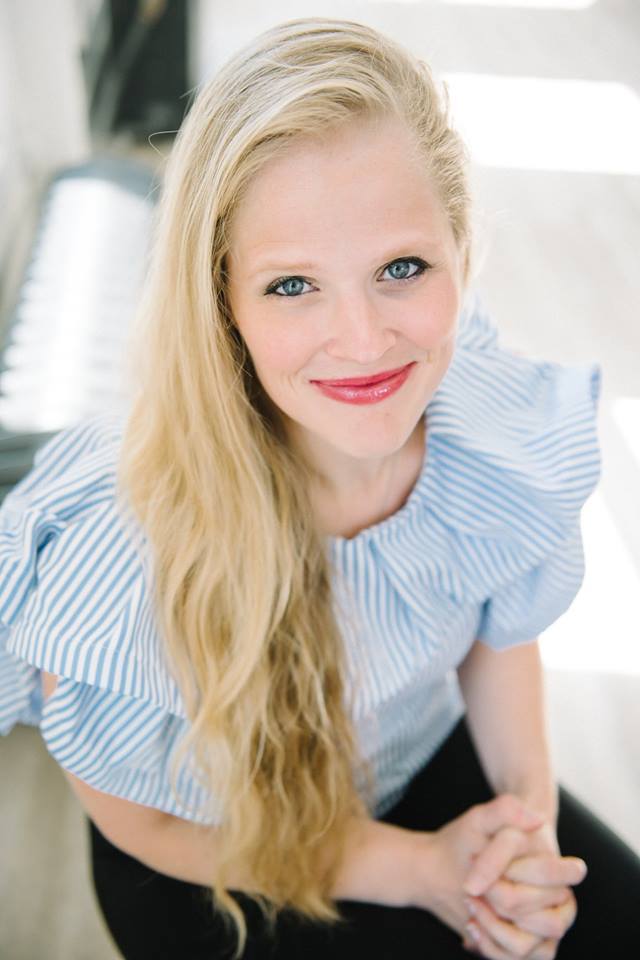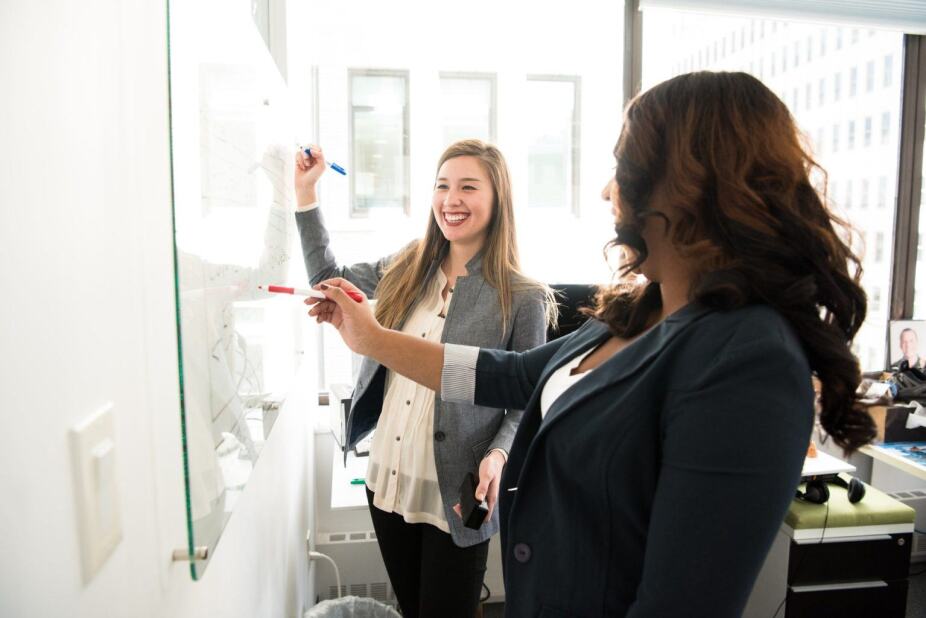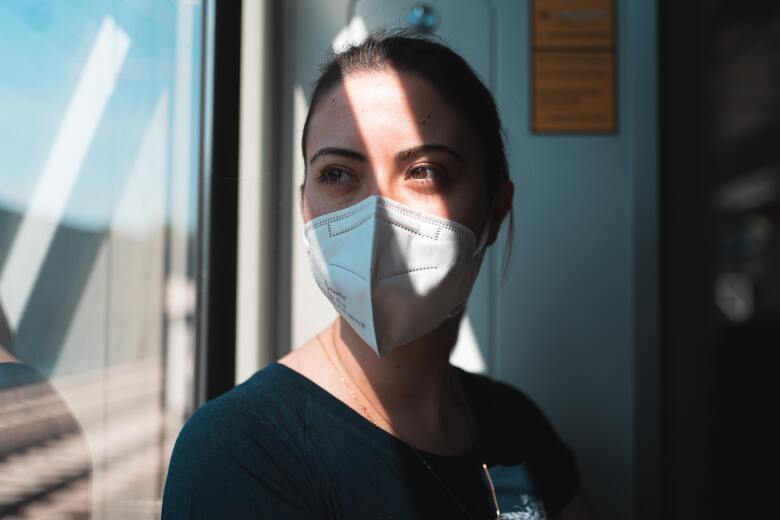I have many heroes. I have a hard time naming them out of fear of leaving someone out. One of the most helpful people early in my Health IT career was Kristin Beard. We worked together and she said I was talented at business development. She was more advanced than I was, and great at marketing partnerships, and we were working with health records companies. She told me that I was naturally great at connecting people. I am. Her own competence and credibility and her recognition of my abilities gave me so much confidence. Years after we met, we still periodically catch up, even though we’ve both moved on to different work.
I am inspired by the person these women think I have the potential to be. I am inspired by the mother my daughter Danielle thinks I am. When Danielle was a little girl, she used to try to jump into pools because she thought it was fun. She wasn’t born with fear. At the time, I was an insecure and anxious mom and I remember thinking, “I don’t want to be too afraid to go into the water to save my child. I don’t want to never play with my kids.” So I pretended to be the person that she thought I was. I had to learn how to swim. I pretended to be fearless like she was. I pretended to be fearless like Kristin Beard thought I was — because, really, I am. I expect things to work out. I love business and I love improving the companies I work with.
To the women who saw the potential I had when I didn’t see it, thank you.
In honor of International Women’s Day, we are featuring female leaders in Healthcare IT, asking them to tell a story about a time a woman inspired them or their work. Women don’t always realize the difference they’ve made in the lives of other professionals, but these leaders in healthcare cite early teachers, leaders in the field, and even family members as their inspiration. With that in mind, I spoke to several of them about their perspectives on International Women’s Day and the women who inspired and supported their careers. Here are their stories.
Dr. Howard is an educator, researcher, and innovator and an expert in pediatric robotics.
When I was getting to know the healthcare space, I had talked to a few people who were involved in developments for use in therapy. I had experience with robotics, but nothing combining it with healthcare, and not in the home, nor with pediatric patients.
That is, until I was introduced to Yu-Ping Chen. Chen was younger in her career and hadn’t worked with an engineer. Chen told me that I needed to do an observation, to see what her work was and then decide what we could potentially do something together. That insistence was important. My team came to Chen and we watched kids go through therapy.
The basic format of therapy started with the same patterns and skills adapted to the individual needs of the child, and I immediately saw that robots could contribute to patient rehabilitation. One patient had severe cerebral palsy, and the therapist was doing several things. They played checkers and would talk with patients about the moves each time. It helped the patients build their physical skills and reasoning. I saw that repetitive motion. Robots are excellent at patterns.
I knew then that I would work with Chen’s team. For her part, she could have been reticent, but she was less entrenched in her field. Rather than prescribing a solution, she invited me to come collaborate after observation--which, to me, is a game-changing overture. This willingness to show your work and invite someone to come and see is a hugely vulnerable step — but it’s made a huge difference, and 12 years later, we are still a team working on pediatric robotics.
Lygeia is an internationally recognized thought leader on e-Health and the Chief Transformation Officer at Carium.
One person who has inspired and helped me is Judy Murphy, now the Chief Nursing Officer at IBM. Back in 2012 and 2013, she was my boss at the Office of the National Coordinator for Health IT (ONC).
Judy inspired me even before she joined ONC because she was so articulate and passionate about changing healthcare. As a boss and leader at ONC, Judy was both tough and extremely kind. She demanded measurable results from her team; at the same time, she cared about helping us grow, and would bring us personalized treats for the holidays.
When I first joined ONC to work on "consumer ehealth," the idea that consumers could have greater agency over their health, supported by technology, wasn't mainstream or well-accepted among policy makers or healthcare providers. During my time there, through a combination of outside forces and the work that my colleagues and I did, consumer ehealth became a growing focus and imperative for ONC. In fact, it transitioned organizationally from a mere "program" to an "office," with representation for the first time on ONC's senior leadership team. Because it was a new, senior position, a national search was conducted to fill the director role for that office.
Although I am sure there were much more seasoned and senior candidates who applied for it, I got the job, largely thanks to Judy's influence, I believe. She supported me in continuing to lead in an area that I have always been and remain passionate about, and she helped me to grow and learn in ways I wouldn't have without that opportunity. I am grateful to Judy for caring about me and the other individuals I have watched her mentor, support, and guide. I try to pay her mix of tough love and generosity forward to talented women (and men) I have worked with and continue to work with ever since.
Aashima Gupta is the Director of Global Healthcare Solutions at Google Cloud and serves on the HIMSS national board. She was chosen as one of the most powerful women in Health IT.
Education has always been important in my family, and in raising my two daughters, we’ve always emphasized learning. However, recently I had an experience that personalized it all for me and gave me a new view of the importance of carving out one’s own learning spaces. When my daughter joined the robotics team in her high school, I was thrilled; I expected that she would further her knowledge and experience in engineering and practice teamwork. However, she was presented with a different situation: whereas the boys on the team tinkered with the robot, the girls were assigned to make slides and presentations, take pictures, and write notes in the engineering notebook.
This frustrating outcome reminded me of the many times in professional settings that women have recounted similar experiences to me – situations where they were in charge of taking minutes of meetings, setting calendars, and barrages of administrative tasks that implicitly fell upon them. It was a big realization for me, that these workplace biases start very early. I realized that we need to tackle the problem as early as the middle/high school levels.
I ended up encouraging my daughter to speak up and ask for a more significant role than just note-taking and reinforced to her the importance of being present as opposed to quitting the club out of frustration. She, in turn, informed the club leaders that she expected to be given a significant role, or else she would make her own club for beginners interested in robotics. She eventually did create a separate club, which she leads, and remains an avid speaker on diversity and inclusion at her school.
While she is thriving with some coaching, I realize that many young girls do not have mentors who encourage them to speak up in the face of gender disparities, which is a huge problem. I worry that no matter how much we encourage them to take STEM courses, scenarios like the one my daughter faced are fairly common and may discourage them from pursuing careers in the sciences, as well as preventing them from gaining necessary skills while still in school. That discouraged me. Women still need to worry about upsetting others in order to gain the skills they need to succeed. When women are discouraged from STEM, it directly and adversely impacts the pipeline of tech talent that we seek while hiring. That is why I continue to work with the GirlsInTek initiative, which inspires young girls in STEM-related fields. It is a long road ahead, however; the cause is bigger than you and I. I am more than driven to be the leader who supports other women, not for the sake of women currently in the field, but also for the sake of our daughters.
Alex is an expert on healthcare information technology and data platforms and leads all international sales engineers for InterSystems.
I have been inspired by a number of key female leaders who have taught me that you can make a real difference in healthcare while working hard to reach your goals, that you can combine career and personal life, and that you should do what you passionately care about. Judy Faulkner, CEO of Epic has really demonstrated how to make a difference in our field, all while running a business successfully and in a way that’s uniquely her own. She is the ultimate powerhouse in HIT for me.
Laura Adams, the CEO and President of Rhode Island Quality Institute, also really exemplifies caring about what you do and the impact it can have on people. She always wants to do the right thing, and that is something that really speaks to me on a personal level. Opioid abuse is a hot topic all around the country; in Rhode Island there was a specific case where a woman’s son died of an overdose. He had visited seven different hospitals and none of the hospitals knew about his other visits or that he was trying to get multiple prescriptions. RIQI’s CurrentCare for Me, Laura’s brainchild, not only shares data between those different organizations, it also allows you set up designee alerts to notify loved ones or caregivers in cases like this. That’s just one example of Laura’s commitment to making people’s lives better.
Closer to home, Christine Chapman, who runs our TrakCare Business Unit, has shown me how to fiercely navigate this male-dominated world and at the same time not neglect my own personal life.
Finally, Helene Lengler, our regional director for Central Europe at InterSystems, has been a personal mentor to me after joining us from a long career at Oracle. I admire her practical and straightforward approach, and the way she listens and really cares about what our customers need.
Emily is the founder of Uncommon Bold, a brand strategy agency for healthcare, and the author of “ Procedure: Women Remaking Medicine.”
There's so many leaders for me to choose from! My colleague Lisa Bari ( @lisabari now at CMMI institute) inspired me often when we worked together at a health tech startup. She's so brave about standing up for what's right and being a champion for people. I try to follow her lead in my career and in my role as a manager — I take inspiration from her clear sense of ethics and her unwavering support for people. We're still friends all these years later. She has a chapter in my book!
I remember being in so many meetings with Lisa where she asked over and over again if we were doing the right thing, if we had thought through the impact whatever we were proposing would have on physicians and patients. She always approached those hard conversations with honesty and love, and was willing to take the fall for the rest of us who maybe weren't as brave.
There's also an anecdote in my book where she talks about being a “pint-sized activist.” The way she tells it, in middle school, she wrote a letter to her school paper about a perceived act of sexism, stating, "This is sexist and wrong, and we should condemn this." That's classic Lisa, and it's so great that she's now taking that fighting spirit and strong sense of justice to CMS, working to make healthcare more affordable for patients.
Also, going further back, I’d be remiss in not mentioning my college professor Dr. Carol Ann Hackley at @UOPacific, who was a major inspiration to me. She taught that the function of communications is to be precise, creative, and ethical. I'm an anti-typo maniac thanks to her. She showed me the power of storytelling and women's leadership. Thanks to her, I had nine internships in college. I owe her a whole lot.
About the Author

Janae Sharp is a physician suicide loss survivor and the Founder and CEO of Sharp Index, a nonprofit dedicated to better physician mental health. Her work includes healthcare data and analytics marketing to improve healthcare outcomes for the underserved. Janae can code, and enjoys making communication easier in tech production, but her true passion is in matchmaking companies to create elegant health IT systems and improve health. She has worked with interoperability and social determinants of health and is an expert on patient and physician engagement. Janae has three children, enjoys learning, hiking, triathlon, and quilting. Follow Janae Sharp on Twitter: @CoherenceMed.




































